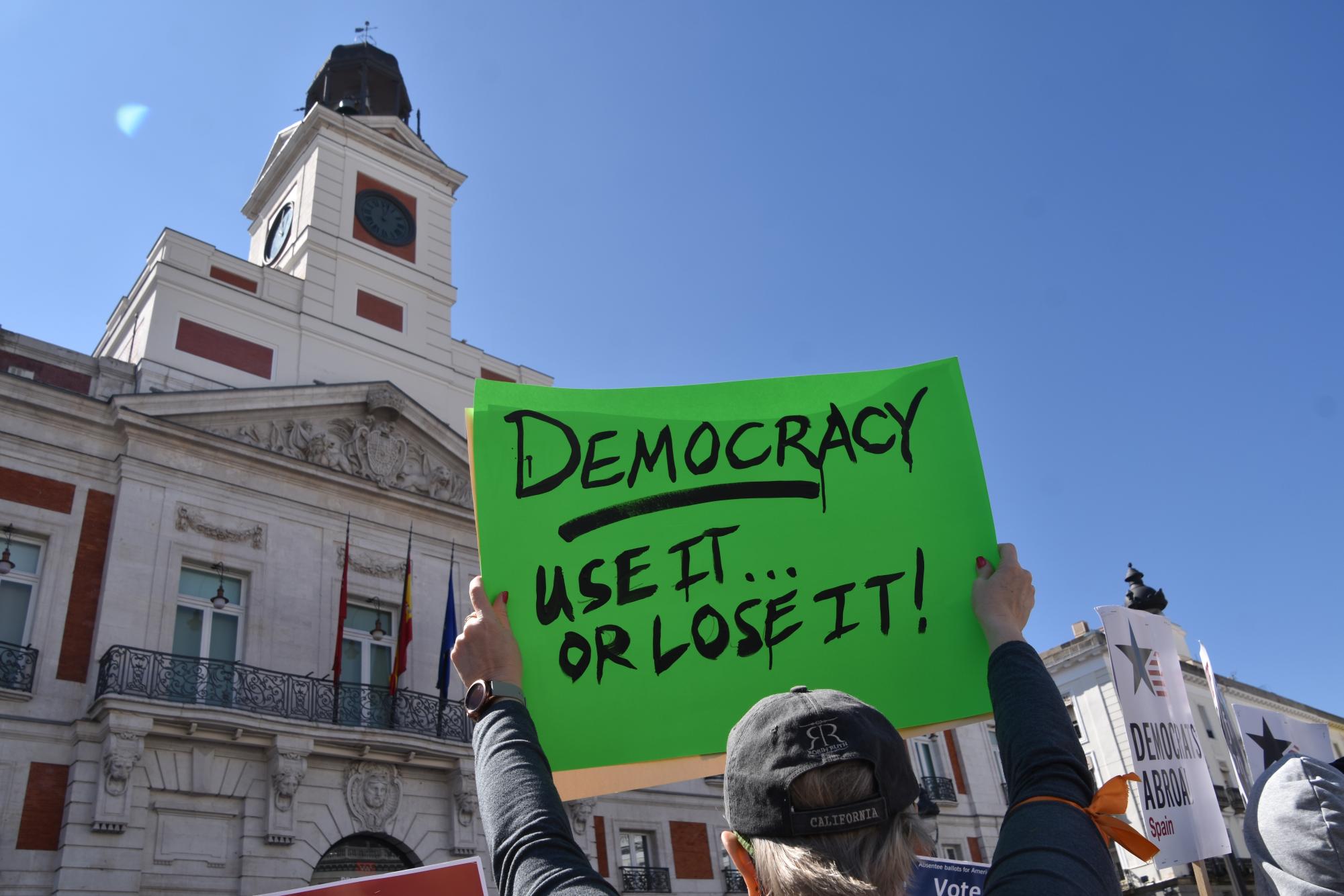
Amelie Van Hess
An American flag flies in the Puerta del Sol during a protest this spring against Trump's executive orders.
Many SLU-Madrid students are concerned about the consequences of President Donald Trump’s executive orders in his first 30 days in office.
“We’ve got to take it day-by-day…but the first thirty days probably aren’t the worst we’ll see,” said Macy Ellis, a political science major from the U.S.
According to Time magazine, President Trump signed 26 executive orders on his first day in office. This has resulted in a federal funding pause for government organizations like USAID, the end of the Diversity, Equity, and Inclusion initiatives, known as DEI, and mass firings of government employees.
Trump’s orders quickly made waves in the lives of ordinary American citizens. For students like Ellis, the long-term effects are looking grave.
“My dad’s a federal employee, he works for the Department of Defense,” Ellis said. “I’m going to graduate in December, and USAID was one of my main prospects. [The funding freeze] just limited half the career choices I could have.”
With sarcastic laughter, she added: “My jobs are out the door!”
Ellis said she found Trump’s decision to eliminate USAID, an organization that provides international relief, to be particularly “abhorrent” and unexpected. She emphasized that millions of people overseas will be left without basic necessities, like water, nutrition services, and vaccines.
She noted that her father is unlikely to be affected by the Trump Administration’s layoff plans across federal agencies. But, he has still felt a shift in expectations since the presidential transition.

In particular, Elon Musk’s Department of Government Efficiency (DOGE) has presented a new challenge for federal employees. In late February, Musk sent out an email to all federal workers, asking them to outline their weekly duties or be fired, according to CNN. This initiative was highly contested, with leaders at the Pentagon, FBI, State Department, Department of Homeland Security, and Department of Energy instructing staff not to reply.
Emily Podgorny, a second-year student from St. Louis, fears Musk’s DOGE is doing more harm than good. “I definitely think there can be a future issue with having a big tech person in the federal government,” she said. “He’s a business man before anything else.”
Podgorny doubts that Musk has the best interests of American citizens in mind. She mentioned how a handful of DOGE employees recently resigned because they were concerned with how their work negatively affected the “well-being of the American people”. The 21 DOGE staffers wrote a joint resignation letter explaining that they refused to “dismantle critical public services”, as was expected of them in their DOGE roles, The Associated Press reported.
Hector Proano, 18, believes Trump’s actions are part of his strategy of “political theater.” He pointed to the contentious meeting Trump had with Ukrainian President Volodymyr Zelenskyy on Feb. 28.
“Him and [J.D. Vance] were making a bunch of statements about respect and gratitude…It’s all just things that aren’t relevant to the question at hand, but show, in a quick second, that the [U.S.] is the one in charge,” he said.
But some students who are happy with Trump’s performance so far.
“I am a big fan of Trump,” said international business major Thomas Zych. “I voted for him.”
Zych approves of the American president’s decision to dismantle DEI, which he claimed was “unnecessary in the first place.” Furthermore, he supports the administration’s positioning on the Ukraine War, though he concedes that the Feb. 28 meeting with Zelensky “didn’t go quite well.”
“But, I think [Trump’s] making a lot of necessary points—as in, the U.S. needs to stop funding things that don’t directly concern them,” Zych said.